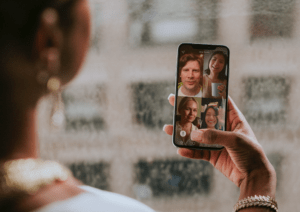Conflict.
AHHHHHHHHHHHHH.
I still feel scared of it sometimes, because a part of me still sees conflict as combat, but since writing Platonic, I see it with more nuance. Here are some things I’ve learned from studying the science of conflict:
- Conflict can give us skills. For kids, conflict with friends can be particularly beneficial. While conflict with parents is top-down, conflict with friends requires negotiation and compromise, which explains why, for them, conflict is linked to better problem solving skills.
- Good conflict starts before conflict happens. One study on adolescents found that in good quality friendships, conflict only became linked to negative outcomes (such as delinquency or withdrawal) when it became frequent. For people in low quality friendships, any conflict was linked to negative outcomes. This study suggests that we set the stage for healthy conflict all the time. Investing positively in our friendships–by being loving toward our friends, reliable, or generous–provides a foundation for healthier conflict when it arises.
- It’s not conflict that hurts our friendships; it’s how we have it. Conflict, in its self, isn’t a bad thing. One study, for example, found that when a betrayal occurred, confronting the perpetrator in an open non-blaming way deepened the relationship. People who are good at conflict (e.g., by listening, admitting fault, de-escalating, and taking the other person’s perspective), another study found, were more popular, and less depressed and lonely.
Since writing Platonic, I’ve come to embrace some additional practices of healthy conflict:
- Ask questions: One sign of healthy conflict is mutual perspective taking. Your friend’s actions may have meant something to you and something different to them. Healthy conflict is reconciliation and involves each party holding their point of view alongside the other person’s. Ask your friend: “What’s your perspective? Where were you coming from?”
- Embrace vulnerability: Often, we attack when a vulnerable part of us has been triggered–a part that feels unworthy, alone, or shameful. We might want to say our friend is bad, unacceptable, or intentionally cruel to escape these vulnerable feelings via blame. Instead, if we can acknowledge our vulnerability, conflict can bring us closer by allowing us to understand each other and build empathy. Next time you have a conflict, ask yourself “what vulnerable part of me did this trigger?” and ask yourself if you can share that vulnerability: “I feel hurt when you make decisions for both of us, because it reminds me [insert instance] where I’ve felt powerless.
- Embrace ambivalence: Ambivalence allows us to harness multiple truths: that even when a friend hurt us, we still love them and they still love us. When we embrace ambivalence, we acknowledge that an instance of conflict doesn’t unsettle the love we’ve built, that even if we’re feeling negatively, we can also feel positively toward our friend. In practice, it looks like: “I was hurt by that comment, even though I know you love me and wouldn’t go out of your way to hurt me.” As my friend Kana shared “just because we’re in conflict doesn’t mean we can’t be kind to each other.”
For more tips on healthy conflict, check out Platonic.




